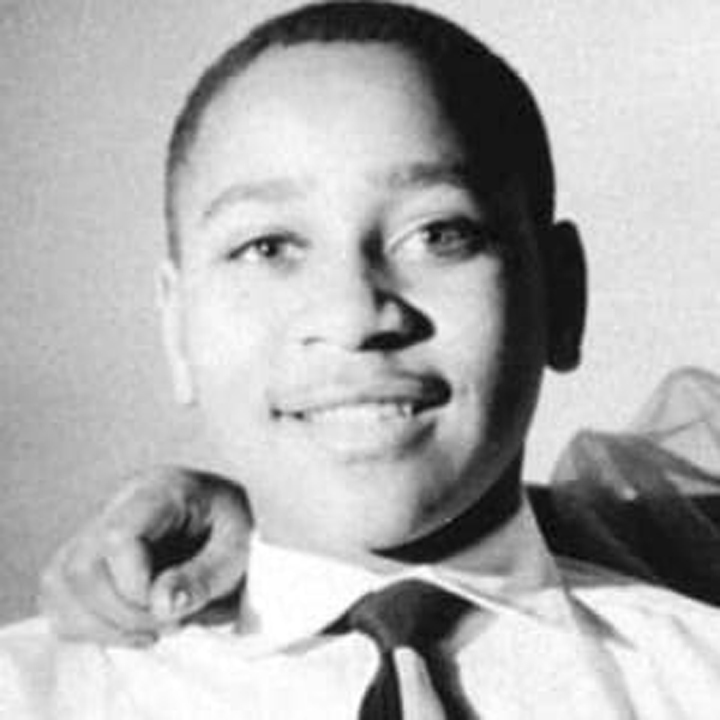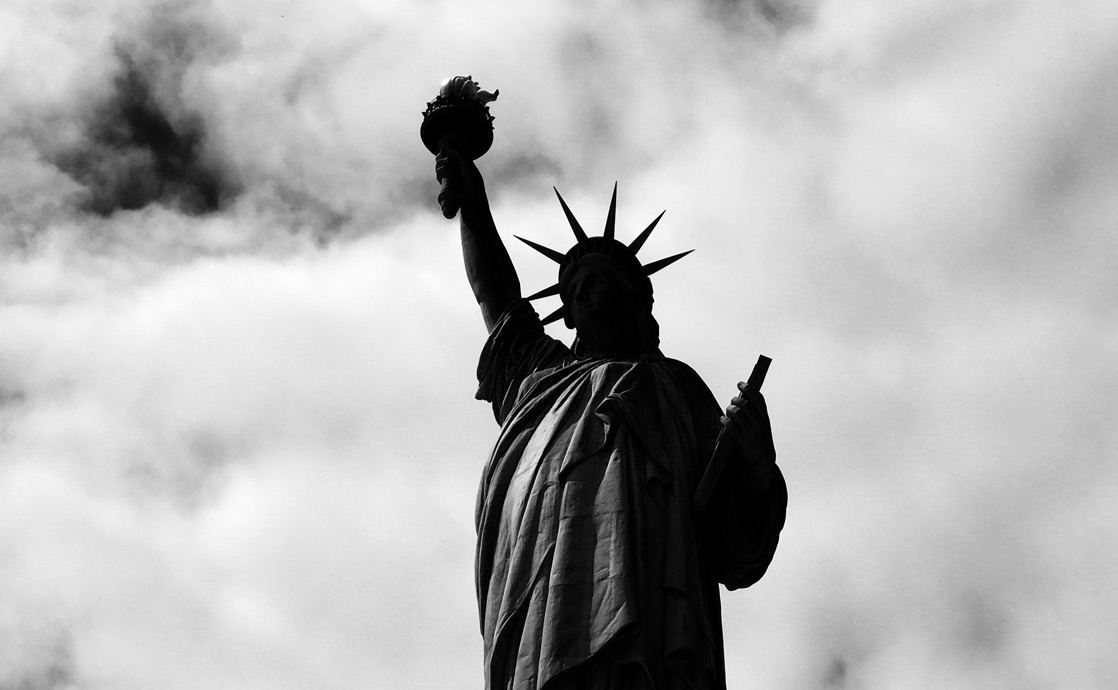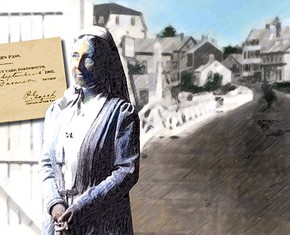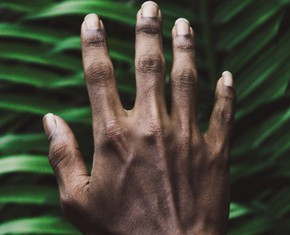The views expressed in our content reflect individual perspectives and do not represent the authoritative views of the Baha'i Faith.
Not long after the conclusion of the American Civil War, Bahaʼu’llah, the prophet and founder of the Baha’i Faith, addressed a letter to the “Rulers of America and the Presidents of the Republics therein.”
In that remarkable, historic letter – the first time in human history that the founder of a major religion ever made direct contact with national leaders – Baha’u’llah announced his station as the promised one and advised the nation to “Adorn ye the temple of dominion with the ornament of justice.”
Ulysses S. Grant was president at the time, and a war-torn America still struggled with the devastation and the enormous aftermath of the Civil War. The vanquished southern white supremacists, under the leadership of former Confederate brigadier general George Gordon and Confederate general Nathan Bedford Forrest, had by 1871 organized the Ku Klux Klan into a paramilitary designed to subjugate the African American population, most of them former slaves, and reassert white control. However, the occupying Union army created one of the remaining obstacles in their path.

Against this backdrop Baha’u’llah addressed America’s leaders by writing: “Bind ye the broken with the hands of justice, and crush the oppressor who flourisheth with the rod of the commandments of your Lord, the Ordainer, the All-Wise.”
Yet it would seem that Baha’u’llah’s admonition fell on deaf ears.
By 1877, with the very close and highly contested election of Rutherford B. Hayes to the presidency, Union troops occupying the southern state capitals were ordered removed. These troops served to protect against the subversion of the civil rights of newly freed slaves by Southern white officials. With the Army’s withdrawal, southern whites now had a free hand to subjugate and disenfranchise Black citizens by ending Reconstruction, encouraging the campaign of terror from the Klan, and establishing Jim Crow laws which ensured that African Americans could not vote or hold office.

In fact, Hayes’ clinching of the presidency was itself essentially bought by what was known as the Compromise of 1877, or more accurately as the “corrupt bargain.” In this unwritten bargain, disputed electoral votes in three southern states were awarded to Hayes in return for his promised removal of troops – and an agreement that the North would not interfere in the South’s treatment of African Americans.
From the outset of Bahaʼu’llah’s revelation, he had made the unity of humankind the cornerstone of his Faith:
The utterance of God is a lamp, whose light is these words: Ye are the fruits of one tree, and the leaves of one branch. Deal ye one with another with the utmost love and harmony, with friendliness and fellowship. He Who is the Daystar of Truth beareth Me witness! So powerful is the light of unity that it can illuminate the whole earth.
Further, Baha’u’llah condemned all racial, ethnic and religious hatred and outlawed slavery:
It is forbidden you to trade in slaves, be they men or women. It is not for him who is himself a servant to buy another of God’s servants, and this hath been prohibited in His Holy Tablet.
The result of the corrupt bargain – continued violence and oppression of African Americans – meant that by 1912, when Bahaʼu’llah’s son Abdu’l-Baha visited America, the terrorist lynching of Blacks occurred at a rate of about 80 people per year. In the same period, the construction of monuments lionizing the Confederacy throughout the South reached its peak of about 140 per year. This was encouraged by the romanticizing of the Confederate’s “lost cause” narrative by the white American public in the media, and in films like “The Birth of a Nation,” which portrayed the Klan as a protector of whites against the supposed barbarism of Blacks.

In this climate Abdu’l-Baha strongly called out in his public and private meetings for the integration of the races, addressing racial hatred against Black people. While speaking at Howard University he said:
Today I am most happy, for I see here a gathering of the servants of God. I see white and black sitting together. There are no whites and blacks before God. All colors are one, and that is the color of servitude to God. Scent and color are not important. The heart is important. If the heart is pure, white or black or any color makes no difference. God does not look at colors; He looks at the hearts.
He would also go on to violate the social protocols of a segregated Washington D.C. by seating Louis Gregory, a black attorney, next to him in the seat of honor at an all-white dinner party, and later encouraging one of the very first interracial marriages in the United States. Coralie Franklin Cook, the principal organizer of Abdu’l-Baha’s historic visit to Howard University, wrote a letter to Abdu’l-Baha that provides a glimpse into the lives and struggles of African Americans at the time:
Laws are being passed in many sections compelling colored people to live in segregated districts, where they have had handsome houses among white residences these houses have been attacked, lives endangered, valuable property ruthlessly destroyed, anonymous orders to vacate, if ignored, have even resulted in the use of dynamite and total destruction of a house and its contents, the Law Courts offer no redress for the word of a black man is not taken against that of a white man where Judge and Jury are all of the dominant class.

Because the Race situation is so acute, because the colored people and their brave friends feel this is the most crucial period in all the Nation’s History, I pray God that no one who has ever embraced the [Baha’i] Faith will step aside to so contribute to the Nations’ shame and so abandon the Cause. Let them say like Luther, “Here I stand, God helping me I can do not other,” like Garrison will not retreat a single inch and will be heard. “I will not hesitate, I will not equivocate.”
One of Abdu’l-Baha’s final acts before passing away in 1921 was to call the Baha’i community to orchestrate the first racial amity conference in America. After the passing of Abdu’l-Baha in 1921, the Guardian of the Baha’i Faith Shoghi Effendi guided the American Baha’i community, admonishing them to address “one of the most virulent and long-standing forms of racial prejudice.”
Even up to the present day, a still racially-divided America struggles to address the uncompromising issues of justice first raised by Bahaʼu’llah more than 150 years ago. Today America’s cities remain segregated and large portions of the Black community live in poverty. This is made all the worse by the challenge of recurrent and persistent mistreatment of blacks by law enforcement. Confederate flags and statues remain throughout the South, unrepentantly, with a bust of the war criminal and co-organizer of the Klan, Confederate general Nathan Bedford Forrest, reverently ensconced in the Tennessee state capitol. Not long before his passing Abdu’l-Baha warned America:
If the races do not come to an agreement, there can be no question or doubt of bloodshed. When I was in America, I told the white and colored people that it was incumbent upon them to be united or else there would be the shedding of blood. I did not say more than this that they might not be saddened. But, indeed, there is a greater danger than only the shedding of blood. It is the destruction of America. Because aside from the racial prejudice there is another agitating factor. It is that of America’s enemies. These enemies are agitating both sides, that is, they are stirring up the white race against the colored race and the colored race against the white race. But of this the Americans are submerged in the sea of ignorance. They will regret it. But of what use will their regret be after the destruction of America? Will it be of any use then? … the importance lies in what is coming, which is the destruction of America. Now is the time for the Americans to take up this matter and unite both the white and the colored races. Otherwise, hasten ye towards destruction! Hasten ye toward devastation!
Unless we all vigorously engage in the solution of America’s racial issues, we risk losing our country.
















Comments
Sign in or create an account
Continue with Googleor